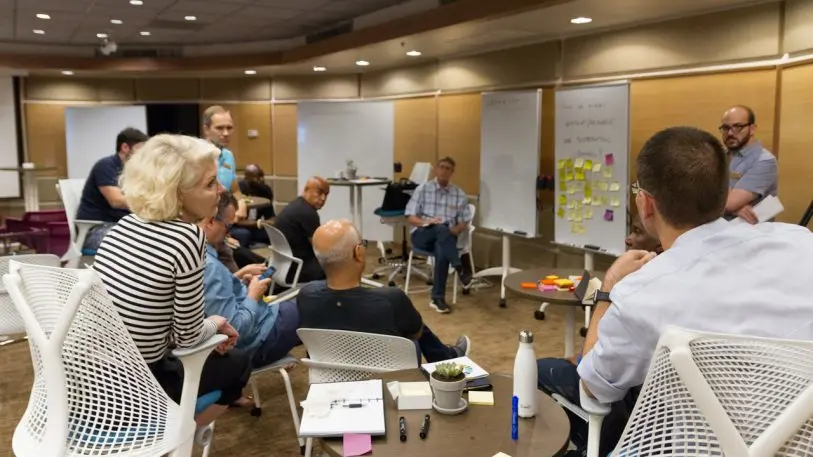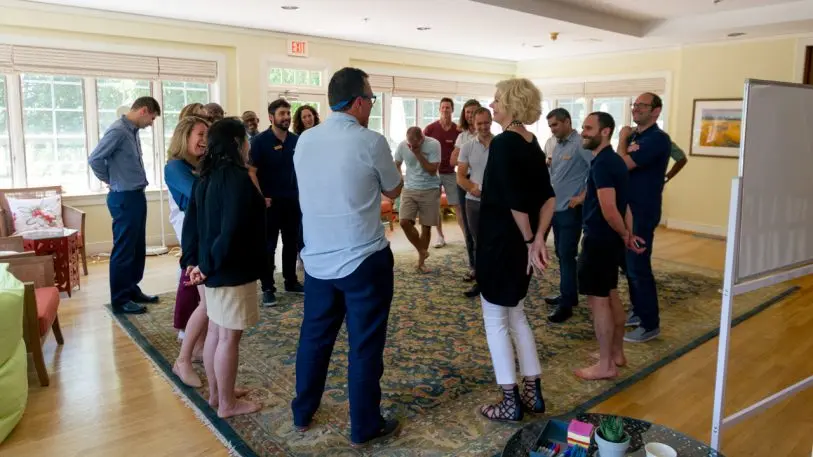The Unreasonable Group, an accelerator for socially-minded startups, was founded on the idea that entrepreneurs can change the world. Its name comes from a famous George Bernard Shaw quote: “The reasonable man adapts himself to the world; the unreasonable one persists in trying to adapt the world to himself.”
But unreasonableness only gets you so far, says Daniel Epstein, Unreasonable’s founder and CEO. To truly exact change, entrepreneurs need to be able to co-operate, including with corporations, governments, and the social sector. “We believe desperately in entrepreneurs as the beacons for the most promising solutions. But if we are going to take those to scale faster, we need to drive relationships between these startups and the largest institutions of our time,” he tells Fast Company.

Unreasonable’s new Unreasonable Goals program reflects this co-operative imperative and mirrors the thinking behind the Sustainable Development Goals, agreed at the United Nations in 2015. Unreasonable Goals looks to help grow 16 startups, one each around each of the SDGs– including hunger, disease, and climate change–and to exemplify the process-oriented SDG 17, which calls for partnerships between governments, businesses and the social sector to achieve the SDGs.
This year’s startups include Liberty & Justice, a Liberia-based apparel maker that has a record of empowering its largely female workforce (as well as giving away free school uniforms). It will work on SDG 5: gender equality. Carnegie Clean Energy, an Australian developer of wave energy, solar and battery storage projects, was chosen for SDG 7 (affordable and clean energy). Meanwhile, Norway-based Agrinos makes bacteria-based alternatives to artificial fertilizers (SDG 2: zero hunger), and EcoPost takes waste plastic and turns it into a substitute wood product (SDG 11: sustainable communities). Other startups cover clean water and sanitation (SDG 6) and health and well-being (SDG 3).

The plan is to run the SDG-themed program each year until 2030, working with a different set of governments and corporate partners around the world each time. To kick off, Unreasonable has teamed up with the U.S. State Department, which is hosting the program in Washington D.C., with representatives from corporates like Johnson & Johnson and Lowe’s also in attendance. Epstein describes the program as a “pathologically collaborative environment,” featuring sessions where the participants brainstorm ideas and talk partnerships. For example, the team from 1MG (SDG 3), an Indian healthcare app with 9 million users, is discussing a potential tie-up with Johnson & Johnson combining “1MG’s model with the scale of J&J’s global footprint,” he says. 1MG offers an online pharmacy and a platform to search for medical testing facilities.
The idea for Unreasonable Goals came from Thomas Debass at the State Department’s Office of Global Partnerships. “He saw that we already work with corporates like Barclays, Pearson, and Nike and he said ‘what would it look like if we don’t just build bridges between entrepreneurs, funders and large multinationals, but we also bring in policymakers from around the world?'” Epstein says. Debass’s group is already supporting a series of civic society groups aligned with the SDGs.
Most of the companies on Unreasonable Goals have been around for several years and are well established. Agrinos, for example, has offices in three countries and already works with thousands of farmers. The accelerator isn’t designed to get startups off the ground, so much as to get them to a place where they can affect more lives. “They’re all measurably impactful around the SDGs. Our question is how we take that to hundreds of millions of people, not just hundreds of thousands,” Epstein says.
Recognize your brand’s excellence by applying to this year’s Brands That Matter Awards before the early-rate deadline, May 3.
